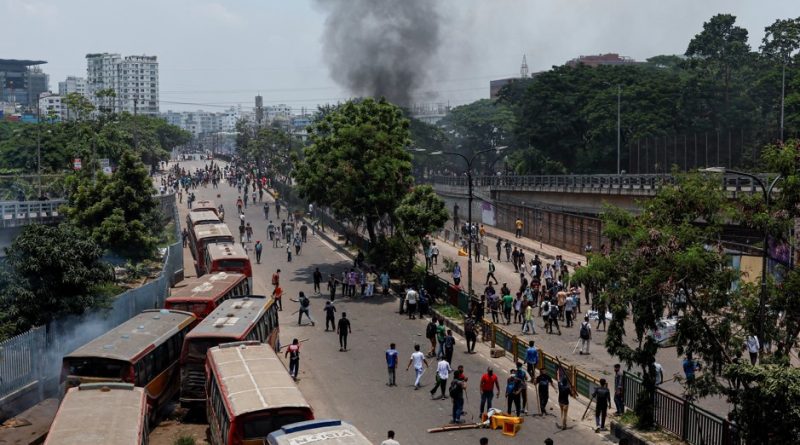Bangladeshi Students Intensify Protests Demanding PM Sheikh Hasina’s Resignation
At least 32 kids were among those killed last month, the United Nations said. (FILE)
Dhaka:
Bangladeshi student leaders on Saturday stated they would continue with a planned nationwide civil disobedience campaign until Prime Minister Sheikh Hasina stepped down following last month’s deadly police crackdown on protesters.
Protests against civil service job quotas sparked days of chaos in July that resulted in more than 200 casualties in some of the worst unrest of Hasina’s 15-year term.
Military deployments briefly restored order but crowds returned to the streets in large numbers this week before an all-out non-cooperation movement intended to paralyze the government scheduled to commence on Sunday.
Students Against Discrimination, the group accountable for organizing the initial protests, rejected an offer of discussions with Hasina earlier in the day before declaring their campaign would persist until the premier and her government resign.
“She must step down and she must face trial,” Nahid Islam, the group’s leader, addressed a crowd of thousands at a monument to national heroes in the capital Dhaka to cheers of agreement.
Students Against Discrimination have urged their fellow citizens to stop paying taxes and utility bills starting Sunday to increase pressure on the government.
They have also encouraged government employees and workers in the country’s economically crucial garment factories to go on strike.
“She must leave because we don’t need this authoritarian government,” Nijhum Yasmin, 20, told AFP from one of many protests held around Dhaka on Saturday.
“Did we liberate the country to witness our brothers and sisters shot dead by this regime?”
The impending non-cooperation campaign intentionally recalls a historical civil disobedience campaign during Bangladesh’s 1971 liberation war against Pakistan.
That earlier movement was initiated by Hasina’s father Sheikh Mujibur Rahman, the country’s independence leader, and is recalled by Bangladeshis as a fragment of a proud battle against tyranny.
“Now the circumstances have changed,” Illinois State University politics professor Ali Riaz told AFP.
“The regime’s foundation has been rattled, the impression of invincibility has vanished,” he added. “The question is whether Hasina is prepared to search for an exit or fight until the end.”
32 kids killed
Hasina, 76, has governed Bangladesh since 2009 and secured her fourth consecutive election in January after a vote without genuine opposition.
Her government is accused by rights organizations of abusing state institutions to solidify its grip on power and eliminate dissent, including the extrajudicial elimination of opposition activists.
Demonstrations commenced in early July over the reintroduction of a quota scheme — subsequently reduced by Bangladesh’s highest court — that reserved over half of all government jobs for specific groups.
With approximately 18 million young Bangladeshis unemployed, according to government statistics, the move disturbed graduates facing a severe job crisis.
The protests had largely been peaceful until assaults on demonstrators by police and pro-government student factions.
Hasina’s government eventually enforced a nationwide curfew, deployed troops, and shut down the nation’s mobile internet network for 11 days to reestablish order.
However, the crackdown triggered a wave of criticism from abroad and failed to quell widespread resentment domestically.
Crowds returned to the streets in large numbers after Friday prayers in the Muslim-majority nation, obeying a call by student leaders to pressure the government for further concessions.
European Union foreign policy chief Josep Borrell this week urged for an international investigation into the “excessive and fatal force against protesters”.
Home Minister Asaduzzaman Khan informed reporters last weekend that security forces had acted with restraint but were “compelled to open fire” to protect government structures.
At least 32 kids were among those killed last month, the United Nations said Friday.
Waiting for response to load…

